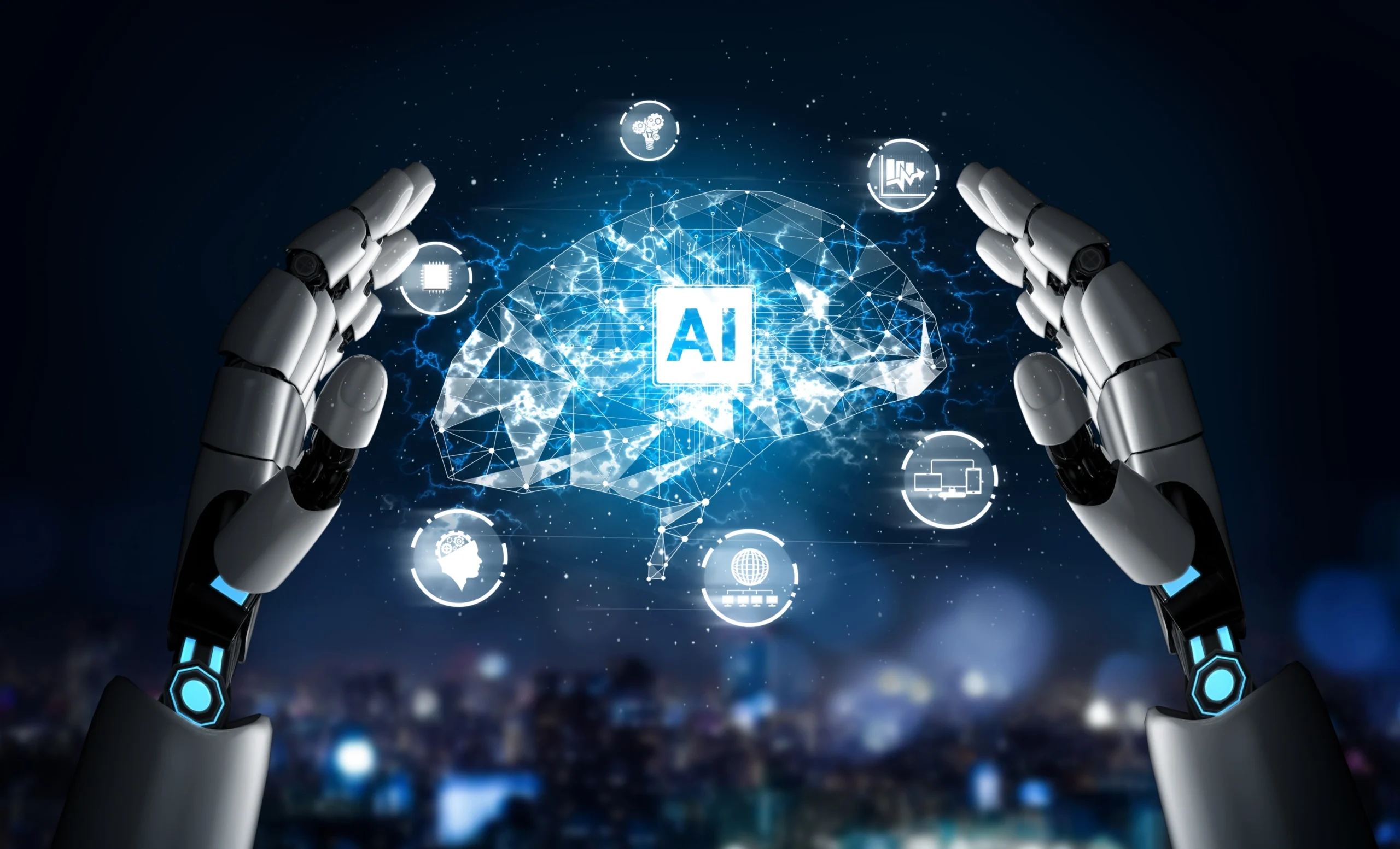Artificial Intelligence, or AI, is changing our world. It touches every part of our lives.
AI helps in many areas like healthcare, finance, and daily tasks. Think of self-driving cars or voice assistants like Siri and Alexa. They make our lives easier and more efficient. AI learns from data and improves over time. This makes it smart and useful in many ways.
In this blog, we will explore AI’s impact on different fields. We will see how it is shaping the future and making things better. Stay with us to understand more about this exciting technology and its endless possibilities.
AI In Everyday Life
Artificial Intelligence (AI) is transforming our daily lives. From the moment we wake up to the time we go to bed, AI is there. It helps us in ways we might not even notice. Let’s explore how AI is part of our everyday routines.
Smart Devices
Smart devices use AI to make our lives easier. Think of your smartphone. It learns your habits. It suggests apps and settings based on your usage. Smart TVs suggest shows you might like. They analyze what you watch. Smart thermostats learn your schedule. They adjust the temperature when you’re home or away. AI in smart devices saves energy and time.
Virtual Assistants
Virtual assistants like Siri, Alexa, and Google Assistant are AI-powered. They understand your voice commands. They answer questions, set reminders, and play music. They even control other smart devices in your home. These assistants learn from your interactions. They get better at understanding you over time. Virtual assistants make tasks easier and faster.

Credit: www.britannica.com
AI In Healthcare
Artificial Intelligence (AI) is changing healthcare. It offers new ways to diagnose and treat diseases. AI helps doctors make better decisions. It also improves patient care.
Medical Diagnosis
AI can analyze medical images. It finds patterns that humans may miss. This helps in early disease detection. For example, AI can detect tumors in X-rays. It is faster and more accurate. AI also reads patient records. It looks for symptoms and suggests possible diagnoses. This saves time for doctors. They can focus on treating patients.
Personalized Treatment
AI helps in creating personalized treatment plans. It analyzes patient data. This includes medical history, lifestyle, and genetic information. AI suggests treatments based on this data. Each patient gets a plan that suits them best. This improves the chances of recovery. AI also monitors patient progress. It adjusts treatments as needed. This ensures the best outcomes for patients.
AI In Finance
Artificial Intelligence (AI) is rapidly transforming various sectors, including finance. The integration of AI in finance has led to significant advancements. These advancements improve efficiency and reduce risks. Let’s explore two key areas where AI is making an impact.
Algorithmic Trading
Algorithmic trading uses AI algorithms to make trading decisions. These algorithms analyze vast amounts of data quickly. They identify patterns and trends that humans might miss. This leads to better trading strategies and higher profits.
AI-powered trading systems can execute trades at lightning speed. This speed is crucial in the fast-paced world of finance. Quick decisions can lead to significant gains. AI also helps in managing risks by making informed decisions based on data.
Fraud Detection
AI plays a crucial role in fraud detection. It can analyze large volumes of transactions. By doing so, it identifies unusual patterns or behaviors. This helps in detecting fraudulent activities early.
AI systems learn from past data. They continuously improve their accuracy over time. This means they can catch new types of fraud as they evolve. Financial institutions rely on AI to protect their customers and assets.
AI In Transportation
Artificial Intelligence (AI) is transforming the transportation industry. AI technology is making travel safer, faster, and more efficient. From autonomous vehicles to advanced traffic management systems, AI is at the forefront of these advancements.
Autonomous Vehicles
Autonomous vehicles, or self-driving cars, use AI to navigate roads. They can sense their surroundings and make driving decisions. This reduces the chances of human error, leading to fewer accidents. These vehicles use sensors, cameras, and algorithms to operate safely. They can detect other cars, pedestrians, and obstacles in their path.
Autonomous vehicles also communicate with each other. This helps in maintaining safe distances and smooth traffic flow. AI helps these vehicles learn from their experiences and improve over time. This makes them smarter and more efficient with each journey.
Traffic Management
AI plays a crucial role in traffic management. It helps in analyzing traffic patterns and predicting congestion. AI systems can adjust traffic signals in real-time. This reduces wait times and improves traffic flow. AI also helps in identifying accidents and roadblocks quickly.
Traffic management systems use data from various sources. This includes cameras, sensors, and GPS devices. They process this data to provide accurate traffic information. This helps drivers make better route choices and reduces overall travel time. AI-powered traffic management leads to smoother and safer commutes for everyone.
Ethical Considerations
Artificial Intelligence (AI) is transforming our world. From healthcare to finance, AI has the potential to improve many industries. But with its rise come ethical considerations. These considerations ensure AI benefits everyone fairly and safely.
Bias And Fairness
AI systems can inherit biases from their data. If the data is biased, the AI will be biased too. This can lead to unfair outcomes. For example, in hiring processes, biased AI could favor certain groups over others. Fairness in AI is crucial. Developers must test AI systems for bias. They should use diverse data sets. This helps create fairer AI systems.
Here are key steps to address bias:
- Use diverse data sets.
- Regularly test for bias.
- Ensure transparency in AI decisions.
Privacy Concerns
AI systems often process large amounts of data. This data can include personal information. Protecting privacy is essential. Misuse of data can lead to serious issues. Personal data must be handled with care. Developers should use strong encryption methods. They should also limit data collection to what is necessary.
Consider these privacy protection measures:
- Use strong encryption.
- Minimize data collection.
- Obtain user consent.
Here is a quick comparison table:
| Issue | Solution |
|---|---|
| Bias in Data | Use diverse data sets |
| Privacy Risks | Apply strong encryption |
:max_bytes(150000):strip_icc()/terms_a_artificial-intelligence-ai_asp-FINAL-ddba8ac599f3438d8064350d2ee1ae5a.jpg)
Credit: www.investopedia.com
Future Trends
Artificial Intelligence (AI) is evolving fast. The future holds exciting possibilities and significant advancements. From emerging technologies to the potential challenges, AI is poised to change our world in countless ways.
Emerging Technologies
Several emerging technologies are driving the future of AI. Here are some key developments to watch:
- Quantum Computing: This technology promises to solve complex problems faster than ever.
- Natural Language Processing (NLP): NLP is improving how machines understand human language.
- Edge AI: It brings AI processing closer to the data source, reducing latency.
- AI in Healthcare: AI is enhancing medical diagnostics and treatment plans.
Potential Challenges
With the rise of AI, there are potential challenges that need addressing:
- Ethical Concerns: AI decisions may raise ethical questions and biases.
- Job Displacement: Automation could replace certain jobs, affecting employment.
- Privacy Issues: AI systems often require access to vast amounts of data.
- Security Risks: AI systems might become targets for cyber attacks.
| Emerging Technology | Benefits |
|---|---|
| Quantum Computing | Solves complex problems faster |
| Natural Language Processing | Improves machine understanding of human language |
| Edge AI | Reduces latency by processing data closer to the source |
| AI in Healthcare | Enhances medical diagnostics and treatment plans |

Credit: incubator.ucf.edu
FAQs
What Is Artificial Intelligence?
Artificial intelligence (AI) is the simulation of human intelligence in machines. It enables computers to perform tasks that typically require human intelligence, such as learning, reasoning, and problem-solving.
How Does AI Work?
AI works by using algorithms and data to train models. These models can then make predictions or decisions. It involves machine learning, where systems learn from data, and deep learning, which uses neural networks.
What Are The Types Of AI?
There are three types of AI: narrow AI, general AI, and superintelligent AI. Narrow AI is specialized, general AI can perform any intellectual task, and superintelligent AI surpasses human intelligence.
What Are The Applications Of AI?
AI is used in various fields like healthcare, finance, transportation, and entertainment. It powers virtual assistants, recommendation systems, and autonomous vehicles, among other technologies.
Conclusion
Artificial Intelligence is transforming our world rapidly. It impacts many areas. From healthcare to education, AI brings efficiency. Businesses harness AI for better decision-making. AI-driven tools simplify daily tasks. It’s crucial to stay informed about AI advancements. Understanding AI helps in adapting to changes.
Embrace AI’s potential while being aware of its challenges. The future holds endless possibilities with AI. Let’s navigate this journey together.








